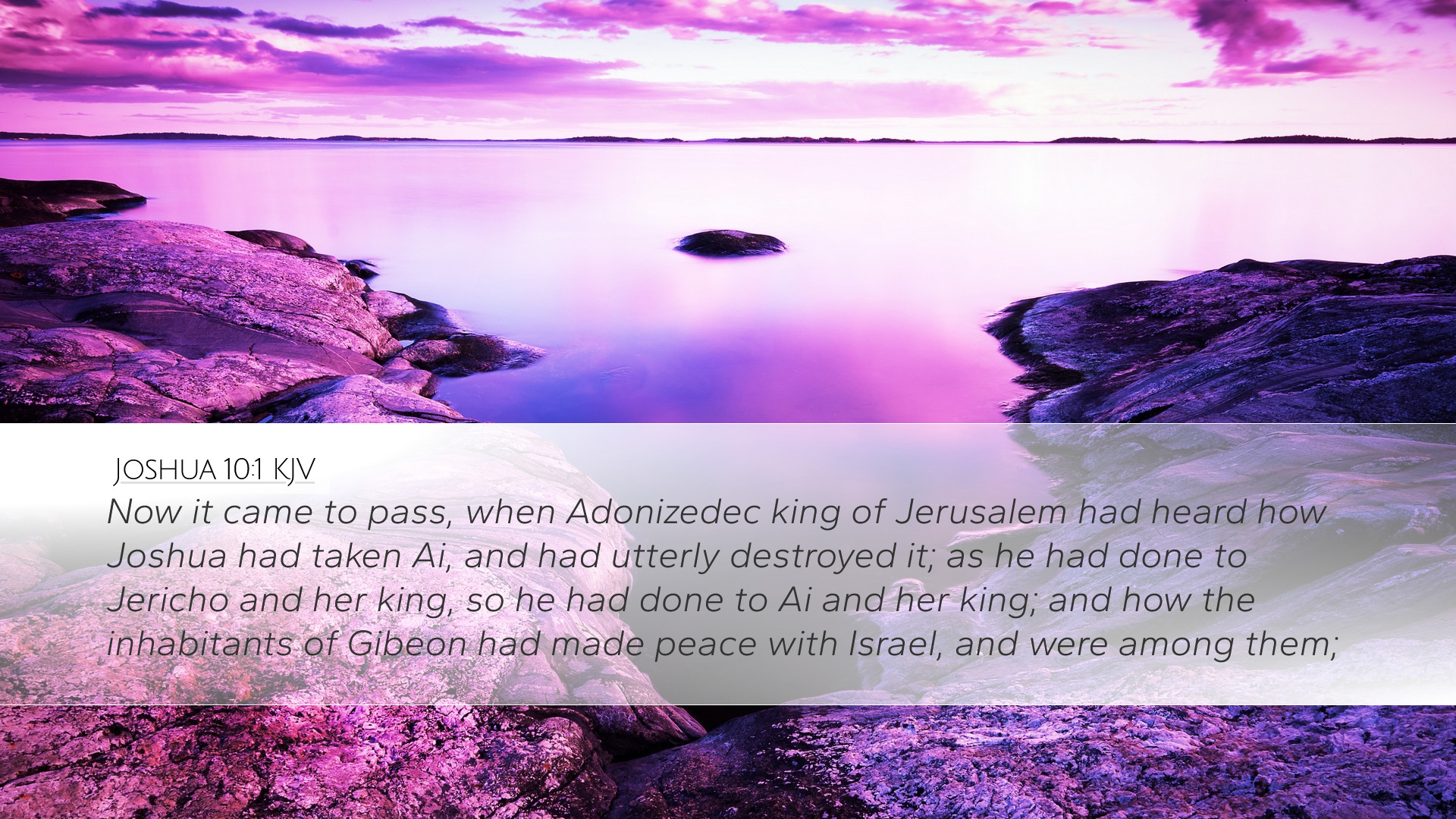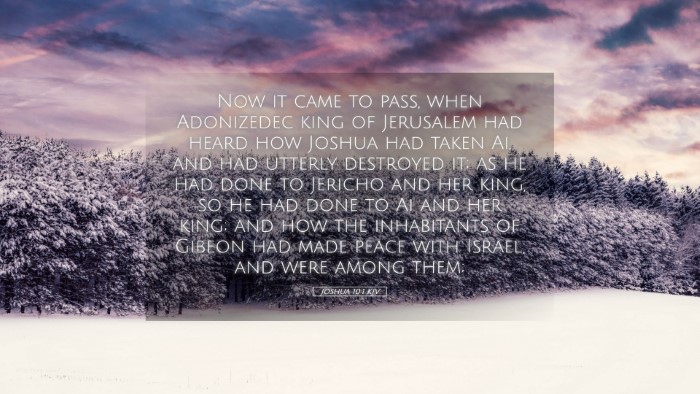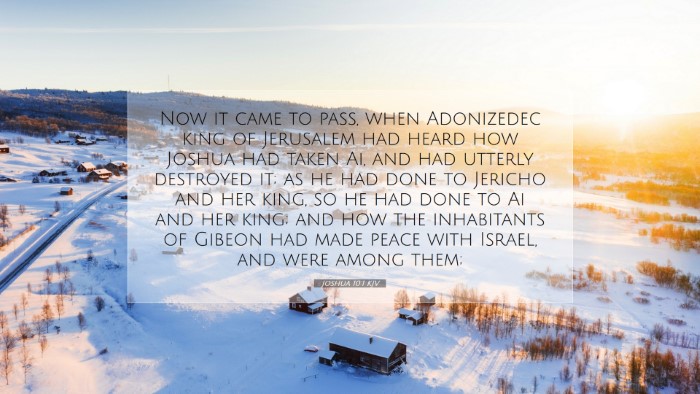Old Testament
Genesis Exodus Leviticus Numbers Deuteronomy Joshua Judges Ruth 1 Samuel 2 Samuel 1 Kings 2 Kings 1 Chronicles 2 Chronicles Ezra Nehemiah Esther Job Psalms Proverbs Ecclesiastes Song of Solomon Isaiah Jeremiah Lamentations Ezekiel Daniel Hosea Joel Amos Obadiah Jonah Micah Nahum Habakkuk Zephaniah Haggai Zechariah MalachiVerse
Joshua 10:1 Joshua 10:2 Joshua 10:3 Joshua 10:4 Joshua 10:5 Joshua 10:6 Joshua 10:7 Joshua 10:8 Joshua 10:9 Joshua 10:10 Joshua 10:11 Joshua 10:12 Joshua 10:13 Joshua 10:14 Joshua 10:15 Joshua 10:16 Joshua 10:17 Joshua 10:18 Joshua 10:19 Joshua 10:20 Joshua 10:21 Joshua 10:22 Joshua 10:23 Joshua 10:24 Joshua 10:25 Joshua 10:26 Joshua 10:27 Joshua 10:28 Joshua 10:29 Joshua 10:30 Joshua 10:31 Joshua 10:32 Joshua 10:33 Joshua 10:34 Joshua 10:35 Joshua 10:36 Joshua 10:37 Joshua 10:38 Joshua 10:39 Joshua 10:40 Joshua 10:41 Joshua 10:42 Joshua 10:43

